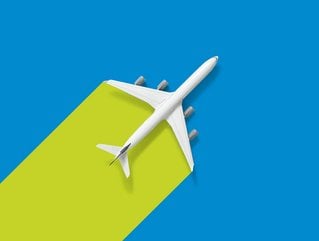Ryanair and Shell join forces for sustainable aviation fuel

Irish airline Ryanair has entered into a memorandum of understanding (MoU) with energy juggernaut Shell that will see the latter supply the former with sustainable aviation fuel (SAF) at 200 airports across Europe where the carrier is operational.
Shell will particularly focus its supply on major Ryanair hubs airports, such as Dublin and London Stansted.
Increasing the supply of SAF globally is a vital step in decarbonising the airline industry, one of the largest culprits in the world in terms of pollutants. As things stand today, SAF accounts for a small proportion of jet fuel used in the world.
Hundreds of thousands of tonnes saved
According to the MOU, Ryanair will be able to access 360,000 tonnes (120 million gallons) of Shell’s SAF between 2025 and 2030. In the event the agreement is successful, this transaction will see 900,000 tonnes of emissions saved, which is roughly the equivalent of 70,000 flights between Dublin and Milan.
The SAF is due to come from a number of sources and sustainable feedstocks.
In comments regarding the deal, Ryanair Sustainability Director Thomas Fowler said: “SAF plays a key role in our Pathway to Net Zero strategy, and also our commitment to a target of 12.5% SAF by 2030. Today’s agreement with Shell helps Ryanair secure access to c.20% of this ambitious goal. Shell is a key sustainability partner for Ryanair, and we look forward to building on this collaboration with Shell as our group grows sustainably to carry 225m passengers annually by FY26.”
The actual agreement was signed at Aviation Sustainability Day, an event held at Trinity College Dublin. The event, produced in collaboration with Ryanair, was held at the college’s Sustainable Aviation Research Centre.
Speaking about the partnership, Shell Aviation’s president, Jan Toschka, summarised: “It’s fantastic to build on our existing relationship with Ryanair to now look at what we can achieve together on sustainability. This initial agreement demonstrates that both companies recognise that SAF is the key to unlock a net zero future for aviation.”
- What will ex-Shell CEO do in his KKR Climate Advisor Role?Sustainability
- Why JPMorgan, Deloitte, Meta & More Support Record SAF DealSustainability
- Renewable Energy Solutions at Netsolar Empower CommunitiesRenewable Energy
- Renewable Energy Solutions at Netsolar Empower CommunitiesRenewable Energy






